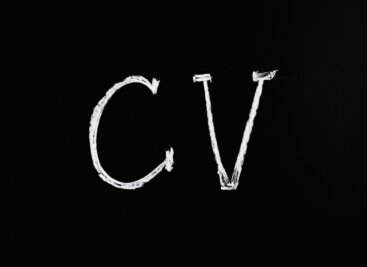Once you have a shortlist of candidates, time spent preparing for the interview stage is essential.
You will have a job description, candidate profile and will have identified the type of person you need to fill your role. The interview is an opportunity to talk through the applicant’s CV, career and work experience. It is also a time to explore the candidate’s motivations and enthusiasm for your role. In addition, it is important to extract all pertinent information and to assess whether you think the candidate is a good cultural fit. Interviews provide a short, finite period of time to assess the candidate’s suitability and there will also be a need to assess technical capability. While those questions are outside the scope of this blog you might wish to get senior colleagues’ agreement on what to ask to assess a particular skill (which could be technical, competency, sector, experience) and what sort of answers would be good ones.
You should also consider whether you want to undertake a case study based on interviewing or to ask the candidate to make a presentation. You should be careful to ensure that by doing so the candidate is being asked to demonstrate some key skills required in the role.
The basics
The first five minutes of the meeting can be spent confirming the interviewee’s details and his or her availability, restrictions on mobility, notice period/likely start date etc. A good recruitment consultant will have already covered this, especially if it is a retained assignment, but it is an opportunity to double-check and put the candidate at ease.
General questions to assess a candidate’s suitability
The following generic questions should give you some valuable insight into the candidate’s level of appropriate skills and experience. Also, whether they have the emotional intelligence and culture fit you seek so that a sensible and justifiable decision can be made regarding your hire
1. Give me a quick walk through your CV / tell me about yourself.
Although this seems like a soft question, it can be very revealing. It is designed to see how well the candidate can stick to the point. Many senior appointments require the ability to summarise key issues for time-short board-level executives, so this question is helpful in more than one way.
2. What do you know about our company and why do you want to work here?
This question will show how much preparation the candidate has carried out and therefore their interest in your company and the role. A particularly well-prepared applicant will know who your competitors are and your position in the market.
3. What skills and relevant experience can you bring to the role?
A self-explanatory question. A strong candidate will demonstrate that they have referred back to the job description and identified and considered the skills and experiences you will value when preparing their answers.
4. Can you tell me about your current job and why you have taken the decision to leave?
Be prepared to dig under the vague “been there a while: time to move on” answer. Note that when candidates answer this they may identify issues that cannot be addressed by moving to your company.
5. In your recent role, was there a time when you had to overcome a significant challenge?
Ideally, candidates should consider the STAR (Situation/Task/Action /Result) method in their answer. This strategy ensures this type of competency-based question is answered comprehensively.
6. What is your ideal work environment?
This is an important question and may highlight any mismatch in working style or a lack of cultural fit.
7. Where do you see yourself professionally in five years’ time?
A question about the future is an opportunity for the candidate to show they have the drive and clear but realistic career aspirations, It will also allow you to assess whether their ambitions align with yours.
8. What would you look to accomplish in the first 30/60/90 days in the role?
Perhaps a question for later in the interview process. This question requires some preparation on the part of the candidate and could be made into a formal presentation. They have an opportunity to show they understand something of the ethos and direction of your company. You would expect them to have considered the job specification and thought about how they could make a contribution quickly. It would also show whether they understand the role in detail.
9. How do you manage your time to handle tight deadlines?
Asking about scenarios that may involve additional pressure gives an insight into how the candidate handles stress or a heavy workload. It also gives them an opportunity to show their ability to prioritise and multitask.
Emotional intelligence and culture fit

It is widely recognised that having greater emotional intelligence can lead to improved collaboration among employees and as a result, a more harmonious workplace. Therefore, in order to identify positive attributes or qualities you look for in your team, you need to consider a candidate’s emotional intelligence and culture fit as part of the interview process.
Employees with high emotional intelligence are more likely to be successful in management consultancy. In the main, they will excel in social interactions. They have a greater level of empathy, a better understanding of the motivations of others and higher self-awareness than their emotionally less intelligent peers. Generally, employees with emotional intelligence are adept at working with others: they are flexible, responsive and react appropriately to the emotions of other people.
In an interview situation, identifying emotional intelligence does not entirely come down to instinct.
Questions that can yield insight:
- What accomplishment are you most proud of? It is important for candidates to recognise that they are competing with others for the role and seek opportunities to tell you about what sets them apart from other people under consideration. A good candidate is prepared and comfortable talking about their achievements. Their answers will reveal whether they are people-orientated. You may want to point them in the direction of work-related achievements….or leave it open and see what comes up.
- Tell me about a time when you’ve handled a difficult situation or conflict at work. Candidates can use this question to show their analytical ability and problem-solving skills as well as their people skills. They should be prepared for this behaviour-style question and be ready to give comprehensive answers.
- What is your biggest weakness? What critical feedback do you receive most often? Asking this question should show their level of self-awareness and allows the candidate to demonstrate how they tackle problem-solving with themselves. They should be able to show a genuine piece of formative feedback that they have received or a weakness they have identified. Based on this, they should then give a brief account of how they are working to overcome that particular challenge.
- Tell me one significant thing about you that isn’t mentioned on your CV or LinkedIn profile that we haven’t discussed. This style of question can open up a real conversation, which may give considerable insight as to a person’s motivations and character. Again it might be telling if they veer towards a work-related reply or personal. It can lead into…
- What are your passions and interests outside work? A bit of a cliché perhaps and as with all questions you need to consider what you’re looking for. If someone is a keen sportsperson, or loves the outdoors, does that mean they might be a better hire than, say, someone who enjoys more low key or solitary pursuits?
- How do you maintain a work-life balance? Quite a tricky one and the answer could reveal a lot about their suitability in a number of aspects. Be careful to determine what might constitute a good reply or indeed a concerning answer.
- What three words would a current manager/colleague/direct report/friend use to describe you? Note that the four options are not all the same and you probably shouldn’t ask more than a couple. You’re not expecting complete transparency here of course but given all the potential adjectives asking for only three can be revealing.
Inviting questions from the candidate
The interviewee’s response to this question can be revealing: having no questions looks odd and having questions that could have been answered by some preparatory research is disappointing. Ideally, a candidate should have a couple of questions and have the sensitivity to be brief so the meeting does not overrun.
In conclusion
The key to an effective interview process is preparation. Deciding in advance the key requirements for success in the role will allow you to determine the questions to ask each of the candidates. Although you don’t want interviewees to give textbook answers, it is helpful to consider the answers you would expect from a strong candidate.
As well as making notes during the interview, it is essential to spend a few moments summarising your thoughts immediately afterwards. Even if this is a quick a yes/no/maybe with areas for future exploration. If you have a busy day, perhaps meeting other candidates, you will have forgotten by the evening!
If you would like to discuss how Prism could help you to find and secure your ideal candidate please contact Chris Sale, Managing Director, Prism Executive Recruitment on 0203 143 5926 or [email protected].
You can find more information on our recruitment solutions in our Client Services pages.


